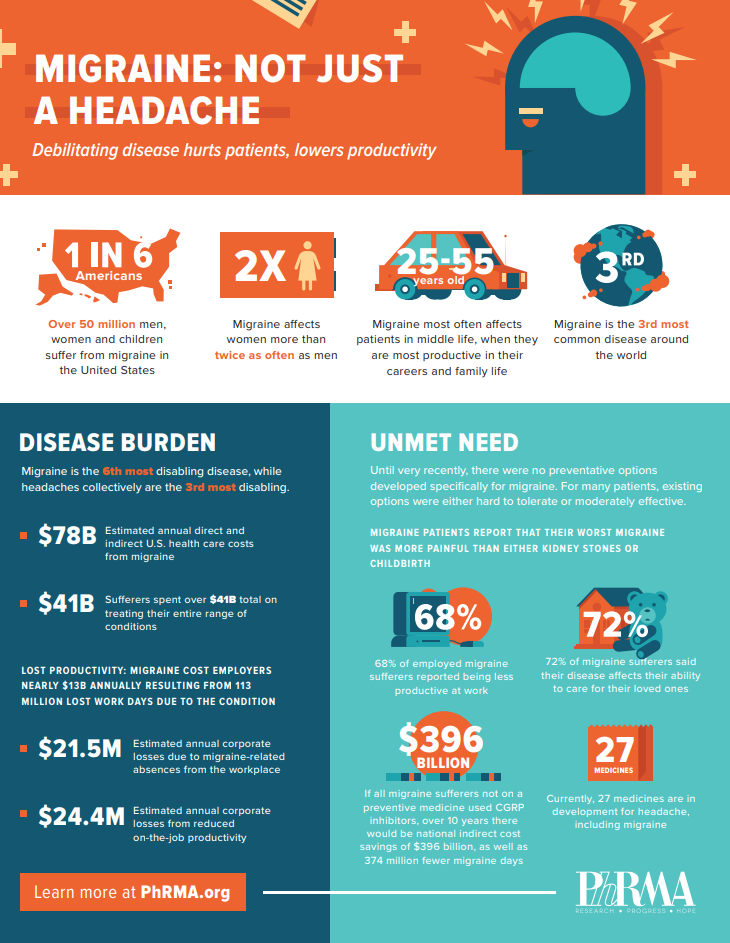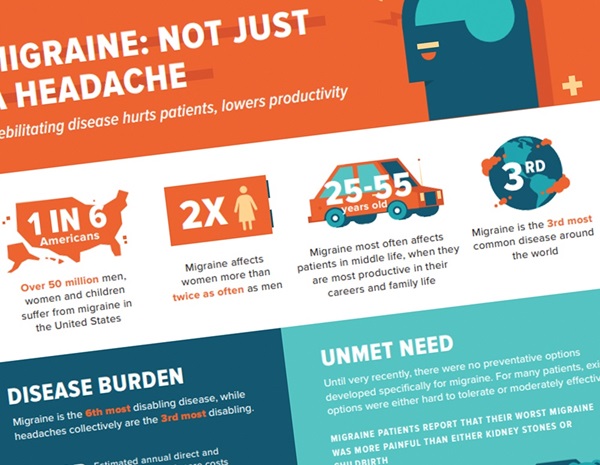A new study found that if all migraine sufferers used an emerging class of preventative migraine treatments, the United States could save $396 billion in indirect costs over ten years and avoid 374 million migraine days per year. For the 1 in 6 Americans who suffer from migraine, these new therapies, called calcitonin gene-related peptide (CGRP) inhibitors, offer hope as the first medicines developed specifically for the prevention of this disease. The study found CGRP inhibitors were associated with:
- Fewer hours of lost productivity per year (more than 18 per year)
- Reduced need for medicines that address the symptoms of migraine
- Higher probability of full-time and part-time employment
- Fewer ER visits per year
The effects of this debilitating disease on patients and worker productivity are extensive. Migraines are not just headaches: A recent survey revealed that 68 percent of employed migraine sufferers reported being less productive at work and 72 percent said their disease affects their ability to care for their loved ones. Additionally, the condition results in 113 million lost work days per year, costing employers nearly $13 billion annually.

View the full analysis here.






